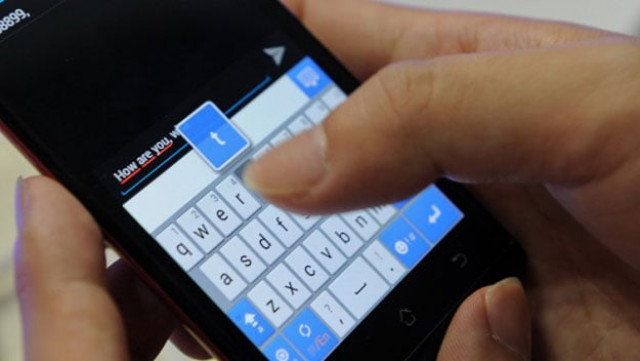Ending text messages with full stops makes you seem insincere: research
Study also finds using exclamation marks makes senders seem more sincere

PHOTO: AFP
In a study conducted by a team of psychologists from Binghamton University, undergraduate students were shown a series of text messages and handwritten notes. They were then asked to rate the sincerity of each sender. The messages either contained or left out periods at the ends of sentences.
Compulsive texting habits can destroy your daughter's grades
 Source: INDEPENDENT
Source: INDEPENDENTHere’s an example:
Texter 1: Do you still want to get dinner tonight
Texter 2: Sure.
Texter 1: Wait are you actually sure? No worries if you’re busy
Texter 2: Yes.
Texter 1: …is there something you’re not telling me??
Participants were significantly more likely to find the senders of period-punctuated texts less genuine than the senders of unpunctuated texts. However, when the notes were handwritten, period use didn’t seem to change sincerity ratings.
Get rid of technology, socialise more to kill depression
The corresponding author of the study Computers in Human Behavior which will be published in February 2016, told Quartz, “Given that people are so adept at communicating complex and nuanced information in conversations, it’s not surprising that as texting evolves, people are finding ways to convey the same types of information in their texts.”
The researchers also carried out another study, this time using exclamation marks. The group found that making use of exclamation points makes senders seem more sincere.
It is to be noted, however, that the research was carried out on 126 US students who were mostly young females. However, the study does show that we are developing new rules in written language to communicate subtleties like passive-aggression.
This article originally appeared on Quartz



















COMMENTS
Comments are moderated and generally will be posted if they are on-topic and not abusive.
For more information, please see our Comments FAQ